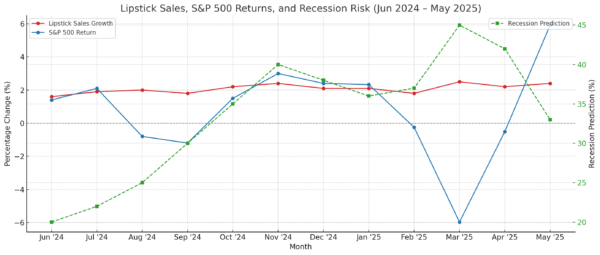Common Stock: What Is It and How Do I Invest?
You may have heard the phrase “common stock” thrown around and wondered what it meant. Well, common stock is what most people think of when they think of a stock. A share of common stock represents a share of ownership in a corporation. As a result, the more shares a person owns, the larger the stake they own in the company as well.
Investors and traders buy shares of common stock in the hopes of earning a positive return on their investment. They can do this through capital appreciation or through the payment of dividends.
In addition, owning shares of common stock entitles you to certain benefits in a corporation, including the right to vote regarding company policies. However, like with any investment, there are risks involved – investing in common stock could put your money at risk if the company does poorly or goes bankrupt.

What Is Common Stock?
As I stated above, common stock is a type of stock that represents shares of ownership in a corporation. People invest in shares like this because they believe that either the stock price will increase over time and therefore earn them profit if they sell or because they want to receive dividend payments.
In general, if a company performs well over time, the share price of the stock will increase. As a company matures from a newer startup to an established corporate entity, it is also more likely to pay out its earnings as dividends rather than reinvest them into the company for growth.
Because many stocks are a liquid asset, you can usually sell your shares for a profit (or loss) at any time. Many investors will choose to lock in their profits after time has passed and the stock has done well by selling out. On the other hand, if the price of your shares has declined and you sell, you may have to take a loss on your investment.
Shareholders also get to vote on who sits on the board of directors and on major corporate policies, which gives shareholders some control over the performance of a company. However, unless you’re a majority shareholder, your individual influence won’t necessarily be felt or influence stock prices very much.
Like other securities, common stock is traded on an exchange such as the New York Stock Exchange (NYSE) or the Nasdaq. You can buy and sell shares through a financial advisor or by opening an account on a trading platform like Schwab or Robinhood.
Why Should I Invest in Common Stock?
The stock market is the greatest driver of wealth in human history. And as a result, it’s a good idea to invest in common stock. There is no better return on your money in the long term.
If you look at historical returns by asset class, including government bonds, corporate bonds, commodities and more, you’ll see that the stock market handily beats them all.
For example, here is a chart that shows historical returns for various asset classes. You can see that between 1926 and 2018, which is a pretty large sample size, stocks have outperformed bonds by more than four percentage points on an average compounded basis.
Short-term Treasury bills (T-bills) barely keep up with inflation at 3.3% annually, and long-term corporate bonds return an average of 5.9%. Meanwhile, large cap stocks return, on average, 10% per year, and small cap stocks have done even better.
If you care at all about growing your money and building wealth, investing in common stock for the long haul is the most rational decision you can make. Of course, there is always risk and volatility in any investment – in the short run, you may lose money on paper, but in the end, you are more likely to win and come out ahead.
Which Stocks Should I Pick?
If you decide to invest in common stock, you will need to decide which stocks you want to buy. In order to do this, you’ll need to familiarize yourself with the companies that you’re considering investing in.
Furthermore, it’s important to consider certain factors before investing. Consider what degree of risk you’re willing to take on a company by evaluating risk vs. reward. In addition, find out what your risk tolerance is when it comes to investing. The amount of investment capital you have can also affect your investment choice. What you can invest in with $10,000 vs. $100,000 will be very different.
For starters, you should have a solid understanding of the type of business conducted by the companies – and how they make money. If you don’t understand how a company makes money, then you should probably stay away from the stock.
Once you have this foundational understanding, you can dig deeper into the company’s financials. Some of the things you will want to examine include…
- Sales/revenue
- Profit/net income
- Earnings per share (EPS)
- Free cash flow (FCF)
- Price-to-earnings (P/E) ratio.
You can find these metrics on most online finance websites, like Yahoo Finance or Google Finance. These metrics will give you a deeper understanding of how well both the company and its common stock are performing. And of course, you’ll also want to consider if a company is likely to sustain its performance in the future.
Once you’ve decided that a stock is worth buying, you can buy shares through your broker or trading app. Make sure to diversify your holdings so that your money is tied to a number of different stocks, which protects you if one company does poorly or goes out of business.
Concluding Thoughts on Common Stock
Investing in common stock is probably the best thing you can do for your long-term wealth. While it’s smart to diversify your holdings in other assets, like gold or bonds, to protect yourself from market risk, putting most of your long-term investments into stocks makes the most sense for most investors.
Make sure to do your research before investing in common stock. There are always risks with investing and returns are never guaranteed. However, this is where becoming your own stock analyst can make all the difference.
Investors have made a killing in the stock market for well over a century now. Do you want to be left behind? Or are you ready to take the plunge and start building wealth with common stock? Your future – and your financial destiny – is up to you!
About Brian M. Reiser
Brian M. Reiser has a Bachelor of Science degree in Management with a concentration in finance from the School of Management at Binghamton University.
He also holds a B.A. in philosophy from Columbia University and an M.A. in philosophy from the University of South Florida.
His primary interests at Investment U include personal finance, debt, tech stocks and more.





